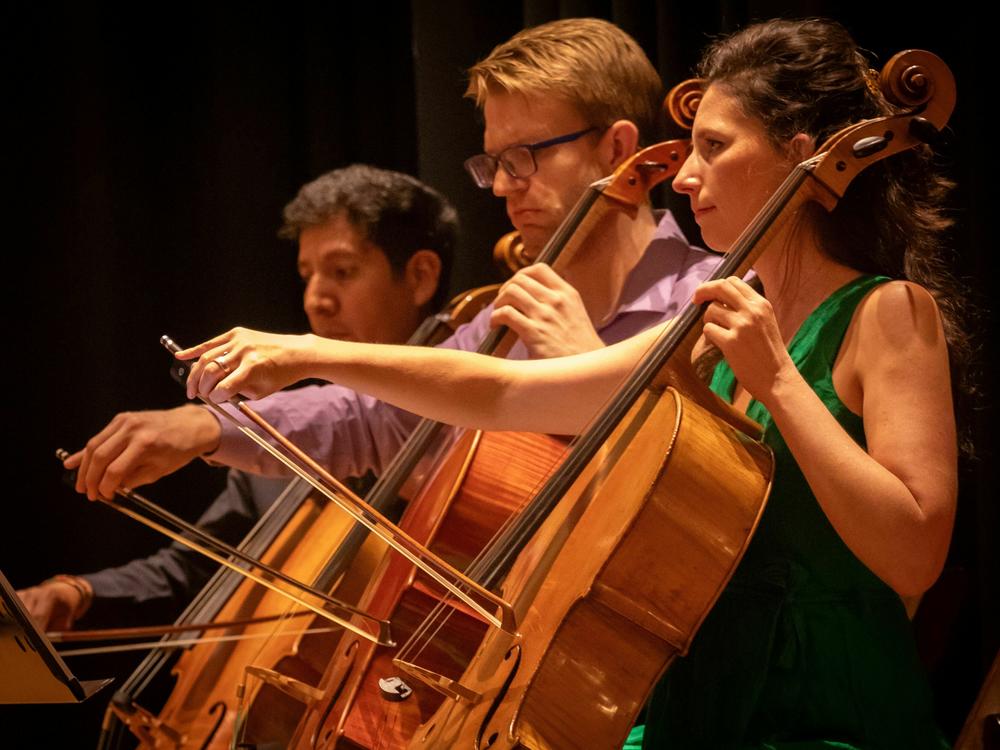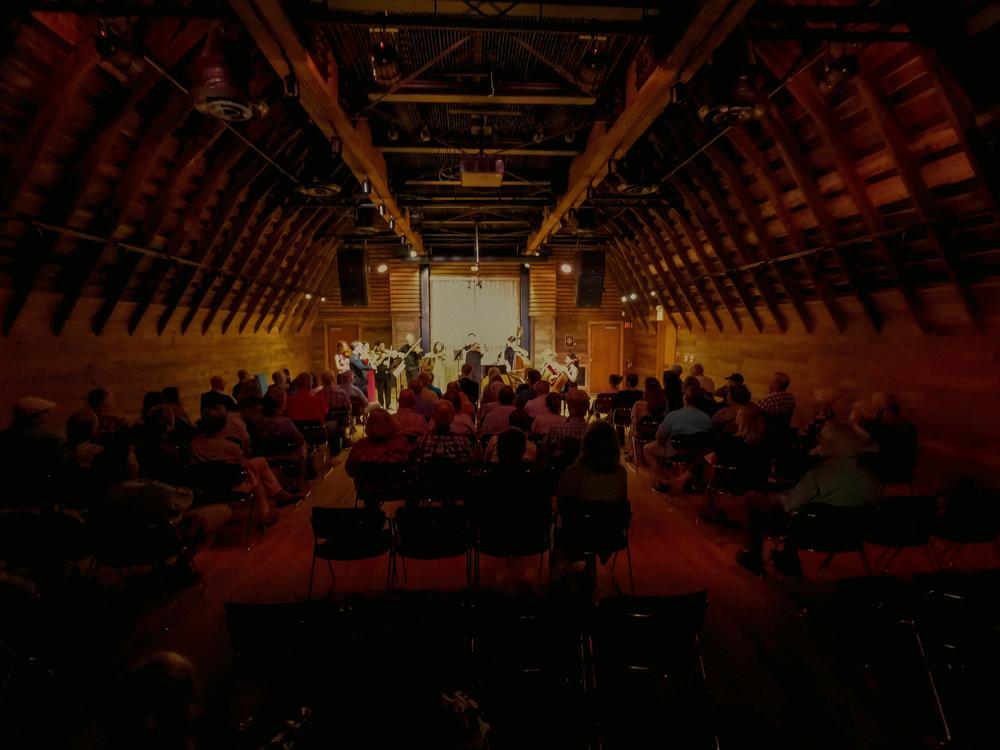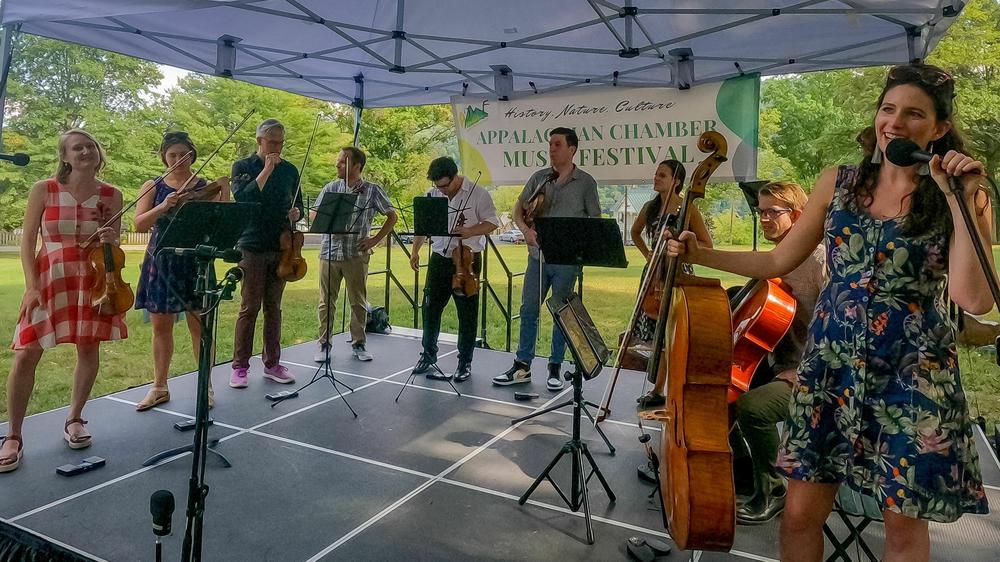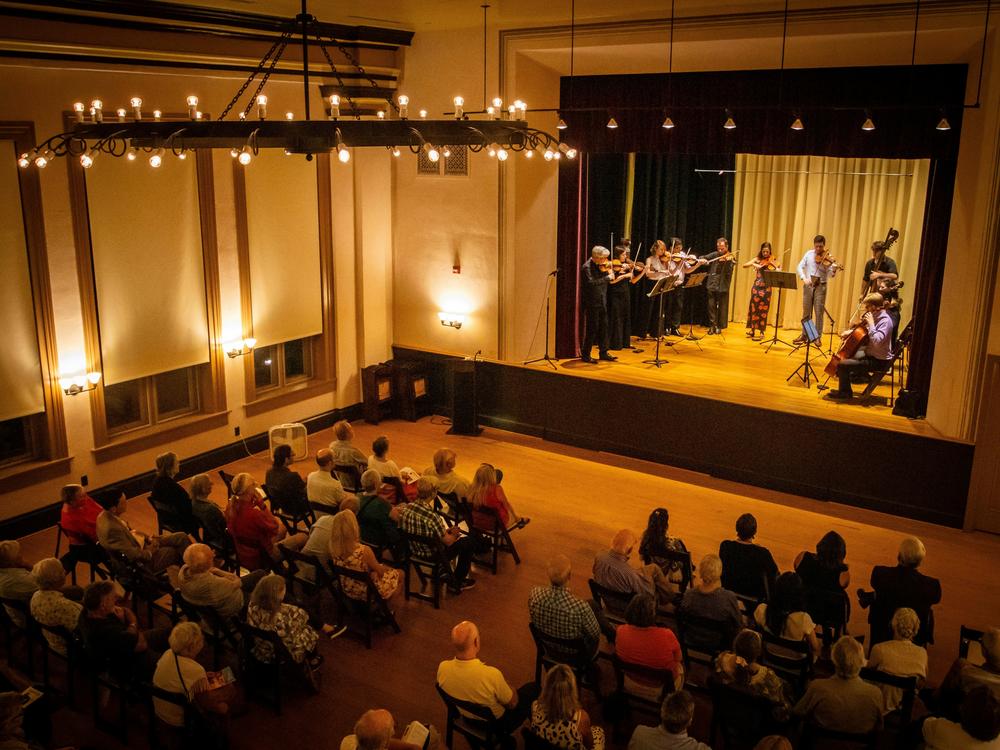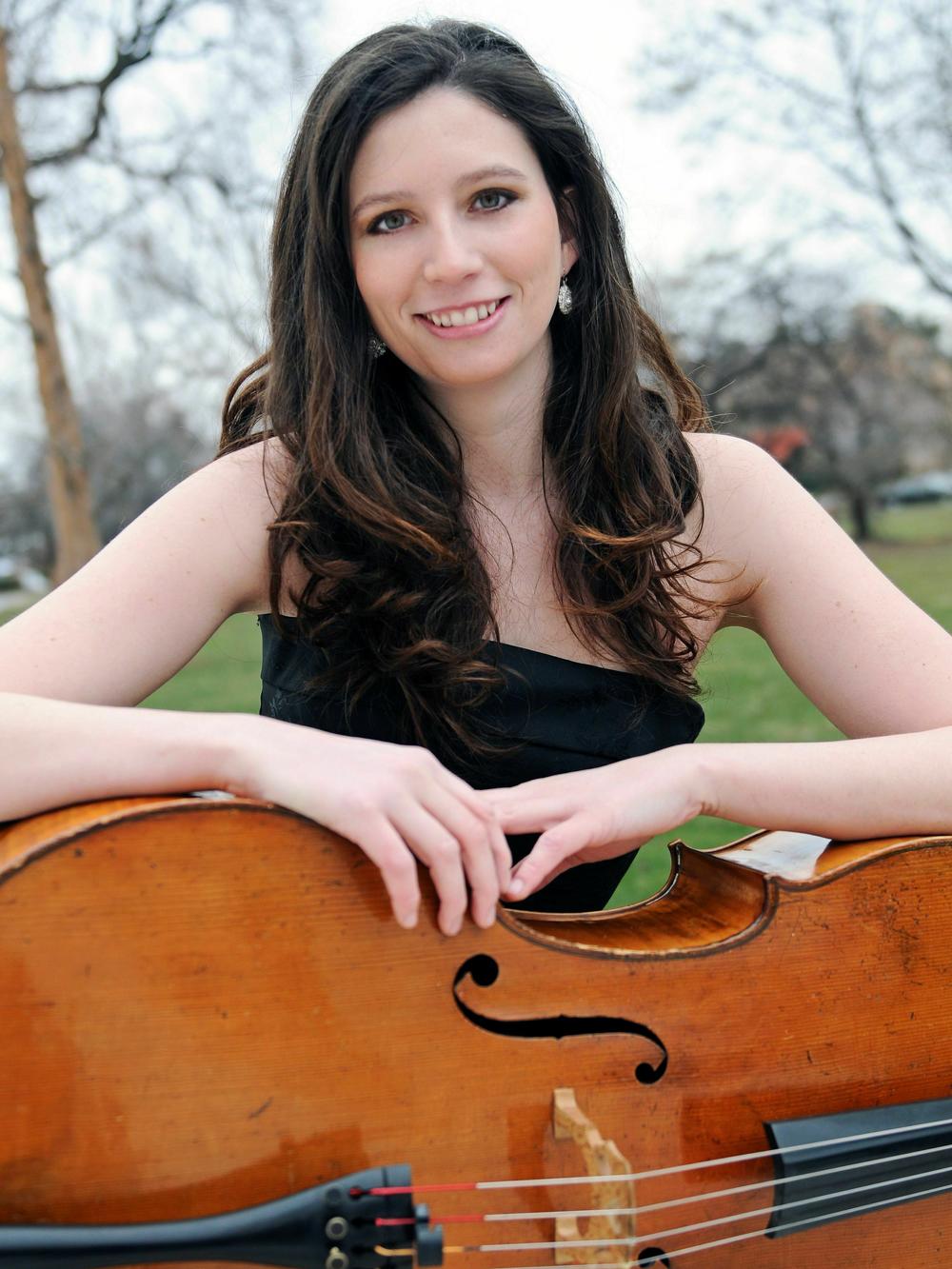Section Branding
Header Content
American cellist hunts for Gaspar Cassadó's nearly lost treasures
Primary Content
Every so often in a musician's life, there comes along a project that marks a turning point and defining moment in the artist's career.
For Katie Tertell, an American cellist based in England, it all started with Gaspar Cassadó.
"I'll never forget the first time I heard his solo suite, and it just sort of stopped me in my tracks and I thought, Wow, that's powerful. It's very soulful," she said.
Born in 1897, Cassadó was a 20th century cello virtuoso. He lived in a belligerent Europe scarred by a first and then a second world war. That period stamped his compositions with a blend of influences on top of a Catalan flair from his roots in northeastern Spain.
"It is a very energetic music that is informed by dance elements, it's informed by cultural elements from North Africa and from France," Tertell said.
He had a significant output. But following his death in 1966, most of his scores remain under lock and key half a world away in the outskirts of Tokyo.
That's because his widow, Japanese pianist Chieko Hara, placed all of his remaining papers in the custody of Tamagawa University's Museum of Educational Heritage upon her death in 2001.
Coveted by musicians and scholars around the world, some 64 unpublished scores are kept there — solo cello pieces, chamber music and even an orchestral work. Only about 25 of Cassadó's works were published in his lifetime. Many have gone out of print.
Musicians the world over have tried — unsuccessfully — to access the precious manuscripts ever since Hara's death. But Tertell thinks she has the magic formula to finally unlock this vault and let the treasures spill out into the open.
"We often say we need a broker to get into these archives," she said.
"Many people have tried to go in the past and gain access to these archives, but they haven't had the kind of three pronged understanding somebody who not only speaks Japanese, but understands both the academic and musical reasons we want to get in there, and then academics and musicians who are studying this and know what to look for," Tertell added. "So it's a complicated process and no one's quite cracked the nut yet, but we are hoping to do that soon."
Tertell spoke with NPR in Sheperdstown, W.Va. on the sidelines of the Appalachian Chamber Music Festival she launched in 2021 during the pandemic. Performances and workshops take place in barns, churches, concert halls, outdoors and even an old train station — all in dialogue with the area's bucolic surroundings and folk music history.
Two violinists and a violist joined her in what's believed to be the U.S. premiere of Cassadó's String Quartet No. 2 at the festival in August.
As part of her journey in telling Cassado's forgotten story, Tertell is seeking to introduce around 30 of the unpublished works starting next year, presenting them to the public through performances, high-caliber recordings and editions of the scores.
This year, Tertell has toured some of these works with other musicians in the United States and Europe. They plan to give Cassado's String Quartet No. 3 its U.S premiere in New York next year.
"To see audiences' responses gives me a lot of hope that it is worth gaining access and finding his unpublished works because his music has a lot to say and a lot to offer to people," Tertell said.
A very public spat
At the heart of Cassadó's relative obscurity is a very public spat he had with his onetime teacher, and fellow Catalan, Pablo Casals.
The pair of cellist-composers met in 1920s Paris. But the relationship soured in the years after the Spanish Civil War, under the fascist rule of Francisco Franco and then through the Second World War, when Cassadó performed throughout Europe.
So staunch was Casals's opposition to the Franco regime that he refused to play in any country that recognized the strongman's government, making a much-publicized exception for John F. Kennedy in 1961. He earned the Presidential Medal of Freedom two years later. In contrast, Cassadó described himself as apolitical.
Casals, already an established figure in America, wrote an accusatory letter about Cassadó that was published in The New York Times. Casals condemned the "presumption" of his former student and his "brilliant career" as an active performer in fascist Germany, Italy and Spain. Cassadó was then forced to scrap a planned U.S. tour and he lost a contract with Columbia Records.
"He was sort of canceled before that was a thing," Tertell said.
Tertell's partner in her endeavor to shine light on Cassadó is H. Rosi Song, a professor of Hispanic studies at Durham University in England, which has provided Research Impact Fund grants for the projects and is also where Tertell teaches.
"Cassadó is not remembered, not even in Spain or in Catalonia compared to Casals, who has become the figure of Catalan identity, even during the recent (2017) failed referendum" on Catalan independence, Song said.
"At demonstrations and protests, you would always see Casals's 'El cant dels ocell' (The Song of the Birds) being played, and his famous phrase saying, 'I am a Catalan.'"
Song and Tertell hope to dust off the manuscripts in Tokyo soon and restore the legacy of a composer they say was "lost in plain sight."
This story was produced by Barry Gordemer and edited by Jacob Conrad.
Copyright 2023 NPR. To see more, visit https://www.npr.org.
